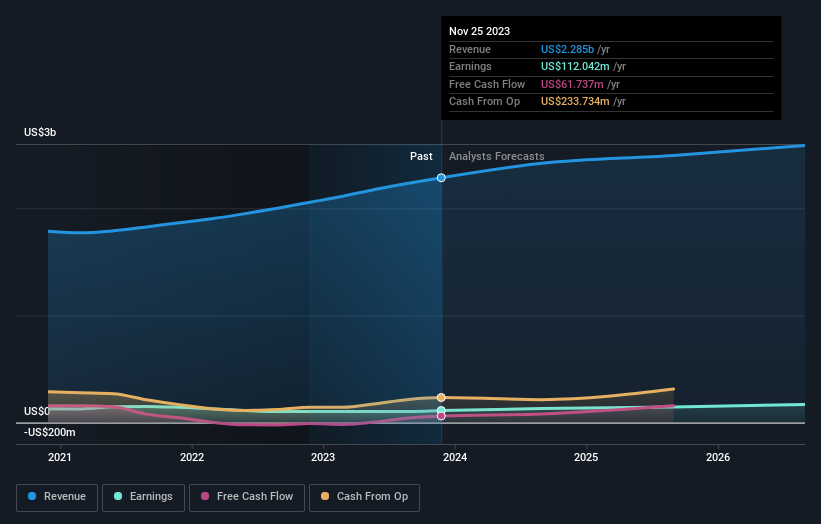When Should You Buy UniFirst Corporation (NYSE:UNF)?
UniFirst Corporation (NYSE:UNF), might not be a large cap stock, but it received a lot of attention from a substantial price movement on the NYSE over the last few months, increasing to US$185 at one point, and dropping to the lows of US$162. Some share price movements can give investors a better opportunity to enter into the stock, and potentially buy at a lower price. A question to answer is whether UniFirst's current trading price of US$169 reflective of the actual value of the mid-cap? Or is it currently undervalued, providing us with the opportunity to buy? Let’s take a look at UniFirst’s outlook and value based on the most recent financial data to see if there are any catalysts for a price change.
See our latest analysis for UniFirst
Is UniFirst Still Cheap?
The share price seems sensible at the moment according to our price multiple model, where we compare the company's price-to-earnings ratio to the industry average. We’ve used the price-to-earnings ratio in this instance because there’s not enough visibility to forecast its cash flows. The stock’s ratio of 28.14x is currently trading slightly above its industry peers’ ratio of 27.56x, which means if you buy UniFirst today, you’d be paying a relatively sensible price for it. And if you believe that UniFirst should be trading at this level in the long run, then there should only be a fairly immaterial downside vs other industry peers. In addition to this, it seems like UniFirst’s share price is quite stable, which could mean there may be less chances to buy low in the future now that it’s trading around the price multiples of other industry peers. This is because the stock is less volatile than the wider market given its low beta.
Can we expect growth from UniFirst?
Future outlook is an important aspect when you’re looking at buying a stock, especially if you are an investor looking for growth in your portfolio. Buying a great company with a robust outlook at a cheap price is always a good investment, so let’s also take a look at the company's future expectations. UniFirst's earnings over the next few years are expected to increase by 35%, indicating a highly optimistic future ahead. This should lead to more robust cash flows, feeding into a higher share value.
What This Means For You
Are you a shareholder? UNF’s optimistic future growth appears to have been factored into the current share price, with shares trading around industry price multiples. However, there are also other important factors which we haven’t considered today, such as the financial strength of the company. Have these factors changed since the last time you looked at UNF? Will you have enough confidence to invest in the company should the price drop below the industry PE ratio?
Are you a potential investor? If you’ve been keeping an eye on UNF, now may not be the most optimal time to buy, given it is trading around industry price multiples. However, the optimistic forecast is encouraging for UNF, which means it’s worth diving deeper into other factors such as the strength of its balance sheet, in order to take advantage of the next price drop.
It can be quite valuable to consider what analysts expect for UniFirst from their most recent forecasts. So feel free to check out our free graph representing analyst forecasts.
If you are no longer interested in UniFirst, you can use our free platform to see our list of over 50 other stocks with a high growth potential.
Have feedback on this article? Concerned about the content? Get in touch with us directly. Alternatively, email editorial-team (at) simplywallst.com.
This article by Simply Wall St is general in nature. We provide commentary based on historical data and analyst forecasts only using an unbiased methodology and our articles are not intended to be financial advice. It does not constitute a recommendation to buy or sell any stock, and does not take account of your objectives, or your financial situation. We aim to bring you long-term focused analysis driven by fundamental data. Note that our analysis may not factor in the latest price-sensitive company announcements or qualitative material. Simply Wall St has no position in any stocks mentioned.

